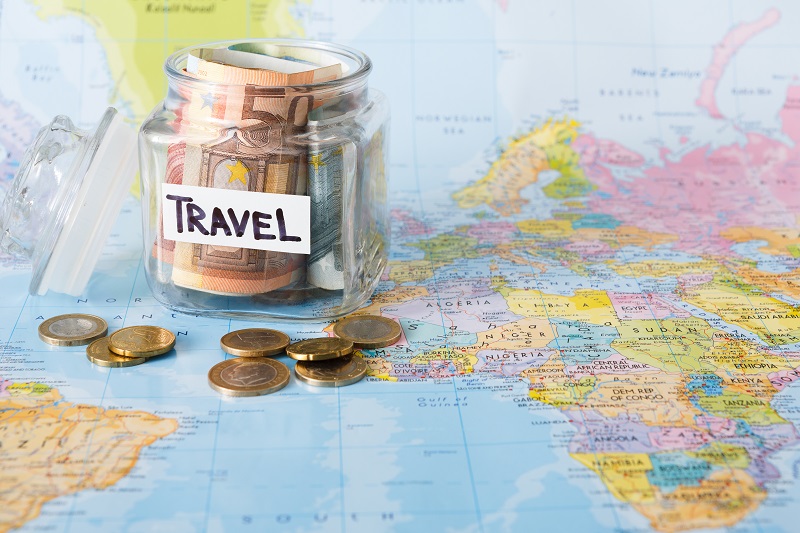The holiday season is probably everyone’s best part of the year. It is often commemorated with a lot of fun and excitement. Families and groups of individuals peruse the scape of the cities where they are holidaying while spending some money.
Spending on holidays creates an illusion that there is no need for limiting it. However, it comes with substantial financial implications after the holiday is over. It is the reason why many individuals consider making a budget when going on a holiday. However, the trick is not in drafting out a budget, but it is about the way of how you stick with it. Here is how you can both make a budget and stick to it.

1. Make A Budget
On the quest to stick to a budget on your holidays, you need to have one. Drafting out a budget helps you to put most of the items and activities during your holiday into perspective. You can start by writing out each activity for your holiday. Think about where you would be staying, places you want to visit, your meal plans, and souvenirs you would be buying.Think about where you would be staying, the places you want to visit, your meal plans, and souvenirs you would be buying.
After you have listed many things as you can, then start budgeting. You should be able to see a total amount of expenses that you can work with. Look through what you have listed on your budget; chances are some non-priority items might have shot up your budget.
2. Be on the Lookout for Deals

Hotels, resorts, and tourist sites always have deals around the holiday period. You can stick to your budget or spend less by looking out for such arrangements. These deals may include lesser per-unit costs when you pay for an extended period or a larger group of people and customer perks such as free meals upon booking an accommodation.
Such deals make sense for both business owners and customers. You can get information on these kinds of deals on the internet; for example, timeshare deals on Koala or call up a local travel agency to find out.
3. Choose the Right Spending Option
You can either choose to pay in cash or go cashless using credit or debit cards. People who usually go on a holiday, who happens to prefer paying using cash, should make sure they spend using the local currency of the place they plan to visit. Find a money exchanger at the airport before you get to your holiday destination; this ensures you carry out your transactions in their local currency.
People going cashless should have the right card (debit or credit) with them when they go on holiday. Here are other things to consider for cashless spenders:
- Make sure you have a card that is suitable for overseas spending.
- Weigh up the difference in charges for different providers.
- Look for deals with service providers and understand them.
- Consider having a pre-paid travel card that has a fixed spending limit throughout your holiday.
4. Track Your Daily Expenses
Take a minute to look through what you have spent daily. It will help you to know how well you have done with your expenses for your trip. If you notice any shortfalls in your daily spending, it is an opportunity to do better during the other days.
However, don’t be too hard on yourself. Sticking to your overall budget might require you to shift some money through the days. If you have made some savings after a trip, you can use the extra money for the other days if you’re going to spend more. This will help to balance the spending differences throughout your holiday.
5. Keep It Local

No one knows how to save costs like a local. Apart from tourist guides, you can make casual friends with a local. Chances are they might be able to give you tips on how best to spend your money in the area. Locals, in most cases, might even offer to show you around, which can be very beneficial to you. They can also guide you regarding how you spend on food, accommodation, transportation, and places to visit.
6. Stall on Impulsive Spending
Don’t forget that you have several days to spend during your holiday destination. Thus, you can leverage your lengthy stay by postponing seemingly impulsive spending. This is important because there will always be multiple things attracting your attention at the same time. Still, attend to your priorities. You may be surprised to find after a few days that you are no longer interested in some of the things you wanted to do earlier.
Conclusion
Holiday splurges can best be kept at bay using a holiday budget. These budgets are only as good as sticking to them. The first thing to do is to draft out a budget that you can stick to. Lookout for holiday deals as these might help cut your costs better. Research about how you should spend during your holiday and choose the most suitable spending option for you. Keep a tab on your daily expenses to know how well you are doing during your stay.
Be friends with locals to have some privileges on how to cut costs. Don’t forget to take some time before you make some impulsive purchases; always remember that the urge to buy some things wears out with time. The things mentioned above guarantees that you can still be able to enjoy a holiday even when on a budget.














